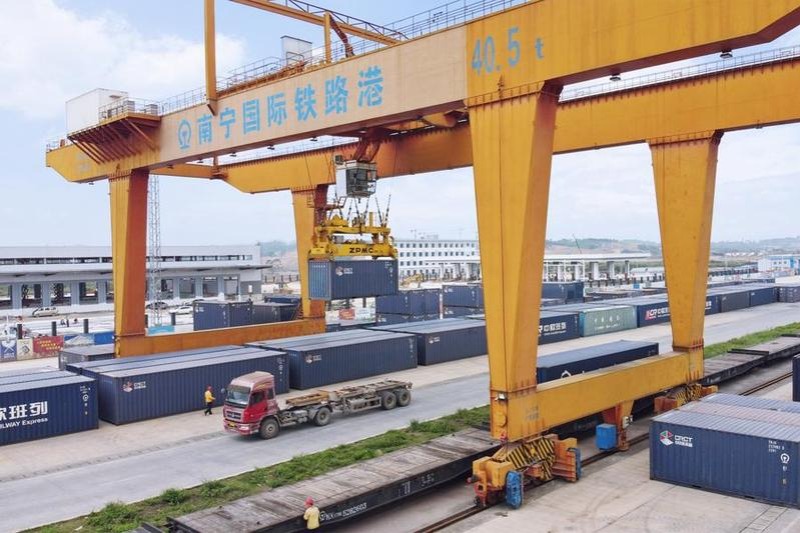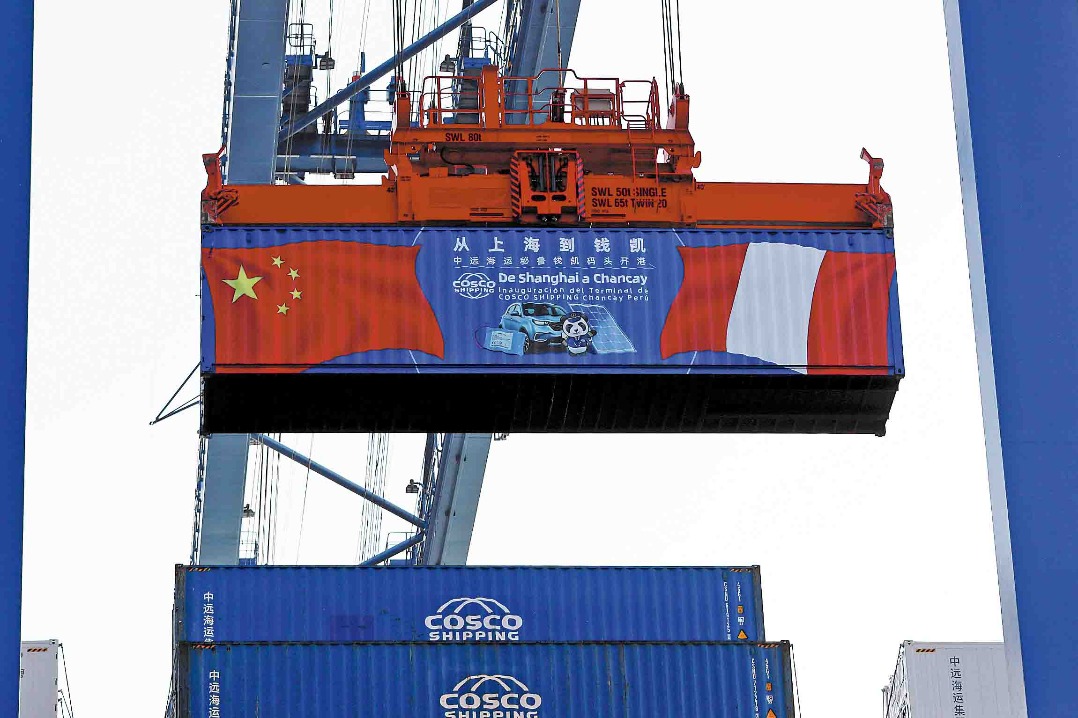Chinese EVs help drive Africa's green transition
EVs: Popularity of?Chinese brands growing in Africa


From Kenya to South Africa, Chinese electric vehicle manufacturers are ramping up investment in Africa, a move that experts said will accelerate the continent's shift toward clean mobility and sustainable development.
Chinese EV giant BYD recently announced plans to nearly triple its dealership network in South Africa by next year, as it seeks to expand its market share in the country, according to Steve Chang, general manager of BYD South Africa.
Chang said the company plans to increase the number of its dealerships in South Africa to 20 by the end of this year and aims to further expand its dealerships to 30 to 35 by the end of next year. The company is currently implementing its hybrid and electric dual power train strategy, selling six models in the local market.
Beyond South Africa, BYD is also deepening its presence in the East Africa region.
The Chinese carmaker is collaborating with BasiGo, a provider of electric bus solutions in sub-Saharan Africa based in Nairobi, the capital of Kenya, to merge Chinese EV expertise with Kenyan assembly, financing and renewable infrastructure.
BAIC, another Chinese automaker, is partnering with Alkan Auto, a subsidiary of Egyptian International Motors Group, to establish a new factory in Egypt that is expected to become operational by the end of this year.
The new EV assembly plant aligns with BAIC's ambitious goal of producing 50,000 units annually within five years, targeting markets across the African continent.
"China is a key supplier of EVs to Africa, as Chinese EV brands are becoming increasingly popular among African consumers," said Dennis Wakaba, a consultant at the Electric Mobility Association of Kenya.
Wakaba emphasized that harnessing Chinese EV technology is vital for Kenya and the broader African continent in advancing the transition to renewable energy in e-mobility.
According to a report by the International Energy Agency, the transportation sector accounts for roughly 24 percent of Africa's carbon dioxide emissions from fuel combustion.
Reducing emissions
The United Nations Environment Programme estimated that by decarbonizing transportation and energy systems, the continent could prevent 200,000 deaths annually by 2030 — a figure that could rise to 880,000 by 2063 — while also reducing CO2 emissions by 55 percent and methane emissions by 74 percent.
It is therefore essential to build the EV industry locally, as African countries are among the hardest hit by climate change, Wakaba said.
"EVs can significantly reduce local emissions in areas where they're used, especially given that fossil fuel-based power generation is one of the highest sources of emissions," said Stephen Dyer, partner and managing director at AlixPartners, a global business advisory firm.
"Africa presents a long-term growth opportunity for the automotive industry, despite its currently small market size. Given China's long-standing presence on the continent through various companies and products, it is well-positioned to play a significant role in the region's automotive market expansion," Dyer said.
He noted that Chinese battery suppliers now lead the global lithium-ion automotive battery market, thanks to their scale and experience. At the same time, Chinese automakers are making rapid strides in autonomous driving and smart vehicle software, with more than half of their engineering workforce dedicated to software development.
"Chinese EV brands are particularly strong in smart vehicle features, including intelligent cockpits and advanced driver-assistance systems, which cover lower levels of autonomous driving. They also offer appealing designs and solid mechanical performance at relatively affordable prices, which helps attract African consumers," Dyer said.
Electric car sales in Africa more than doubled in 2024, reaching around 11,000 units, yet they still accounted for less than 1 percent of the continent's total vehicle market, according to the IEA's "Global EV Outlook 2025" report.
Due to the absence of government incentives that could help narrow the price gap between EVs and more affordable gasoline-powered vehicles, as well as limited availability of charging infrastructure, EV sales in Africa are expected to grow more slowly in the medium term, Dyer said.
Chinese automakers currently dominate global EV production and sales, which positions them better to play a pivotal role in driving EV adoption in emerging markets including Africa, he said.
With adequate support from local governments for charging infrastructure and EV incentives, Chinese EV manufacturers could play a significant role in helping African nations meet their decarbonization targets, he added.
liujianqiao@chinadaily.com.cn




































